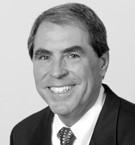1 Thessalonians 5:22:
“Abstain from all appearances of evil” (KJV)
“Abstain from every form of evil” (ESV)
I confess that whenever I encounter this verse, I picture old, withered saints shaking their bony fingers in younger believers’ faces and exhorting them about some questionable behavior. In this recurring scenario, the godly, mature Christians find it necessary to exhort the younger saints, not because they have done something that is evil, but simply because they behaved in a manner that could have the appearance of being evil.
This understanding of 1 Thessalonians 5:22 can be traced back to the King James Version of 1611. The KJV chose the word “appearance” for the Greek word eidos, which means visible form, outward appearance or kind, sort. Since this translation appeared, well-intentioned Christians have focused on the outward appearance aspect and concluded that we are not only to avoid evil, but we are also to avoid anything that could outwardly appear to be evil. Hence, the genesis of the widely-used ethical dictum, “Avoid every appearance of evil.”
I have good news and bad news for you about this understanding of 1 Thessalonians 5:22. The bad news is you may have been following a moral dictum that is not supported by either its own biblical context or broader biblical ethics. The good news is that you are now freer than you realized to minister to the hurting people of planet earth. Please allow me to undergird these extravagant claims.
1 Thessalonians is the Apostle Paul’s letter to a group of new Christians who have been persecuted by their fellow citizens in northern Greece for most of their six months in Christ. It is an adversarial context for the church, so Paul spends much of his time defending his church-planting team’s integrity and actions in chapters 1-3. In chapters 4-5 (“the moral exhortation” section), he addresses five successive threats to the life of this body. 1 Thessalonians 5:12-22 is the fifth and final significant issue facing this fledgling church.
This last issue in vv. 12-22 deals broadly with the concerns that arise when the church gathers for her weekly assembly. Paul gives instructions about how to foster healthy body life in this context by rightly esteeming leaders (vv. 12-13), dealing sensitively with the varying needs of the saints (vv. 14-15), establishing a joyful assembly (vv. 16-18), and not quenching the ministry of the Holy Spirit in prophetic utterances (vv. 19-22).
Given the broader context, we are now ready to look at the immediate context for v. 22. Notice the logical flow of the argument about prophetic utterances in vv. 19-22:
“Do not quench the Spirit” (v. 19) (the general exhortation);
“Do not despise prophetic utterances (v. 20) (the specific negative aspect of the
exhortation).
“But examine everything carefully” (v. 21) (the contrasting positive aspect of the exhortation);
“hold fast to that which is good” (v. 22) (what to do with good prophecies after examining);
“abstain from every form of evil” or “every evil form of utterance” (v. 23) (what to do with the evil prophetic utterances).
As is generally the case with Scripture, God and the human authors are very specific in their discussions. They seldom sprinkle broad moral sayings in free-standing fashion. By contrast, they usually speak in a closely-argued style, especially in the New Testament letters. Such is the case with 1 Thessalonians 5:22. By removing v. 22 from its very specific context, we abstract the language from its tightly reasoned moorings and create a much more general, vague concept.
Moreover, did Jesus “avoid every appearance of evil”? I think not! One of His constant criticisms at the hands of religious people was that He spent time with “defiling people” like tax gatherers, swindlers, irreligious people (“sinners”), and probably even prostitutes. By their standards, He seemed regularly to have the appearance of evil. But perhaps this is the accusation we must bear along with Jesus, rather than inappropriately withdrawing from the sin-scarred people in our lives. Perhaps this is also part of the rebuke many receive at the hands of those who don’t read 1 Thessalonians 5:22 in context. My advice? Topple this faulty moral pillar!
 Biola University
Biola University
.jpg)
.jpg)

